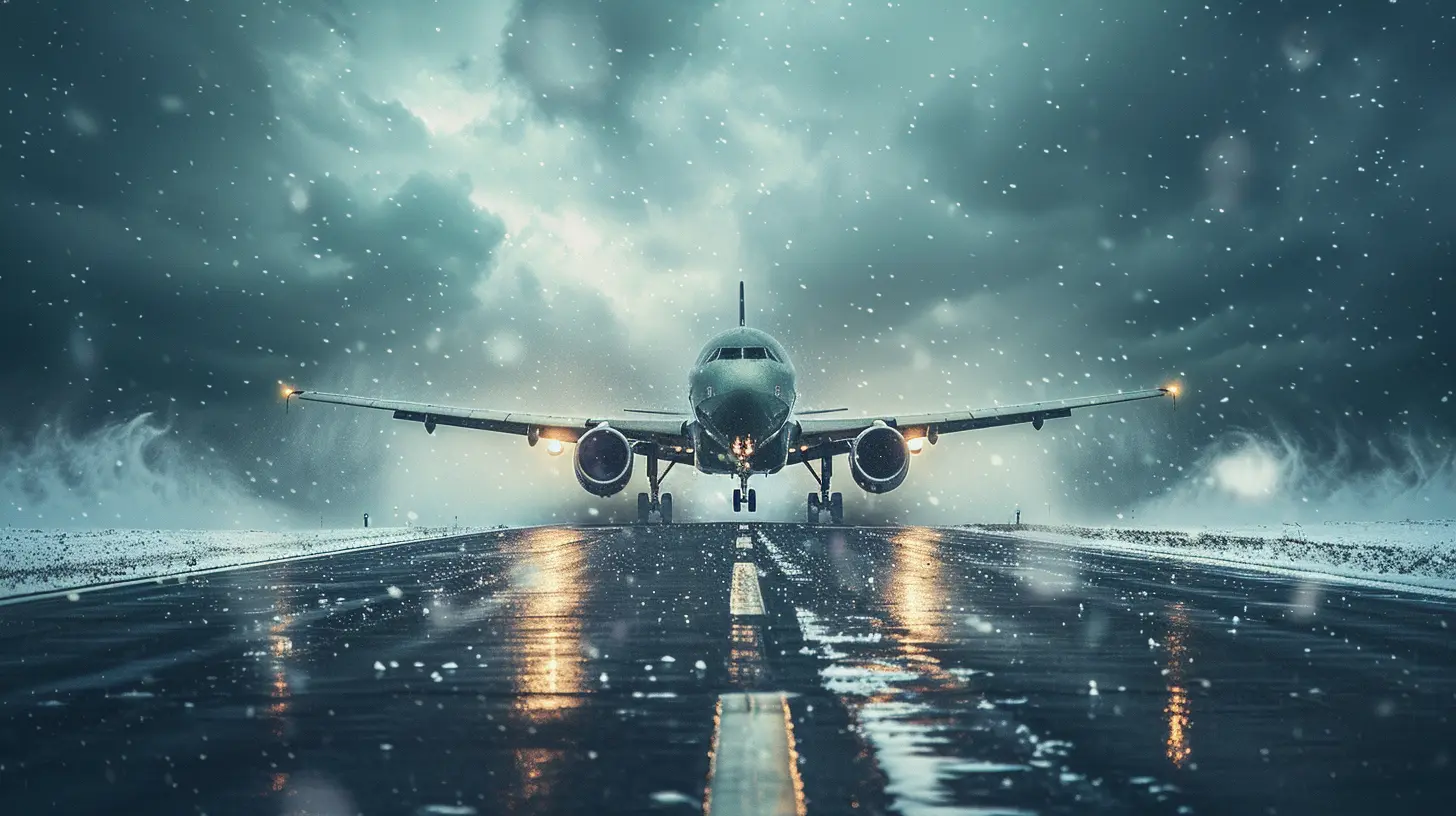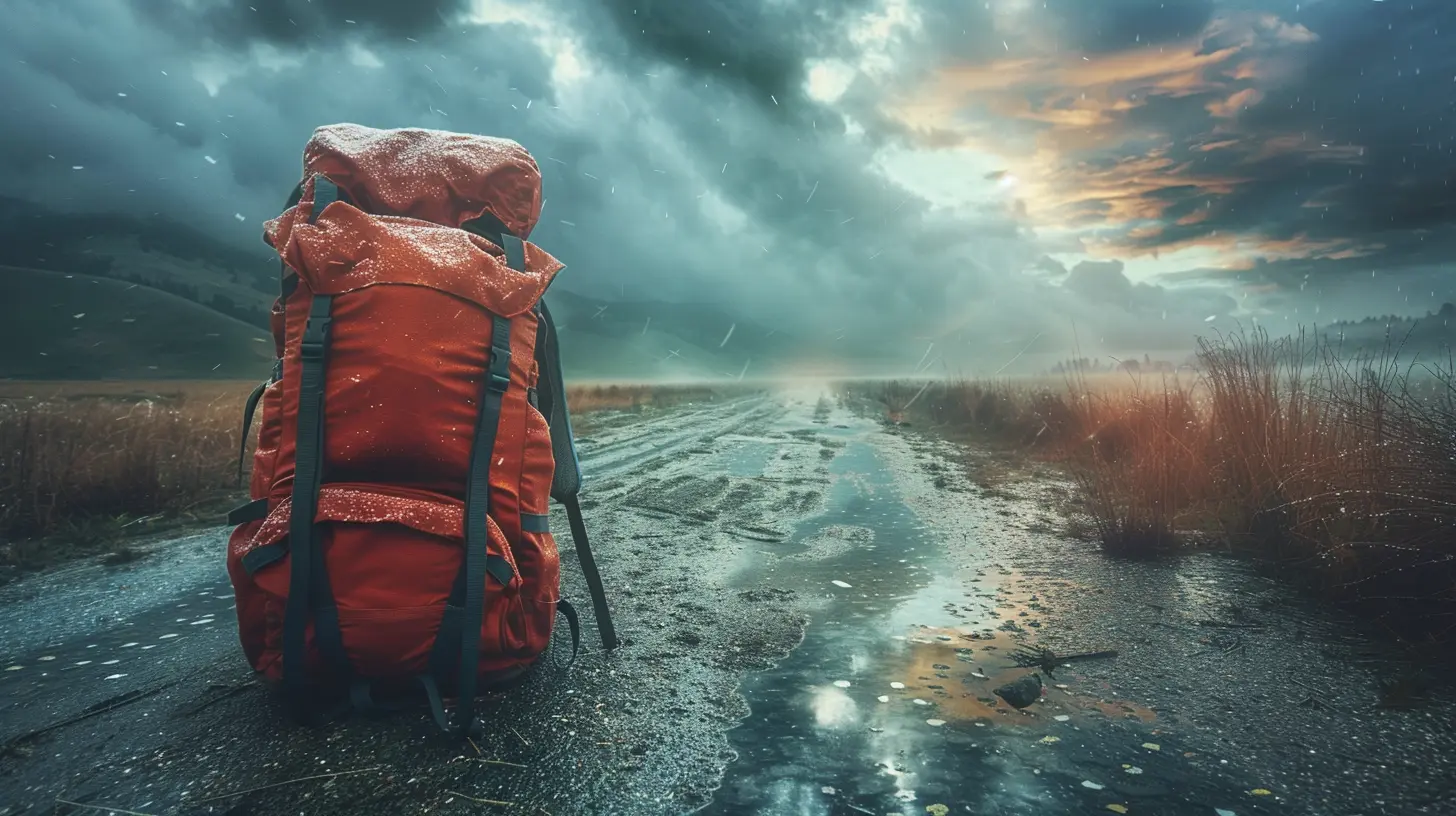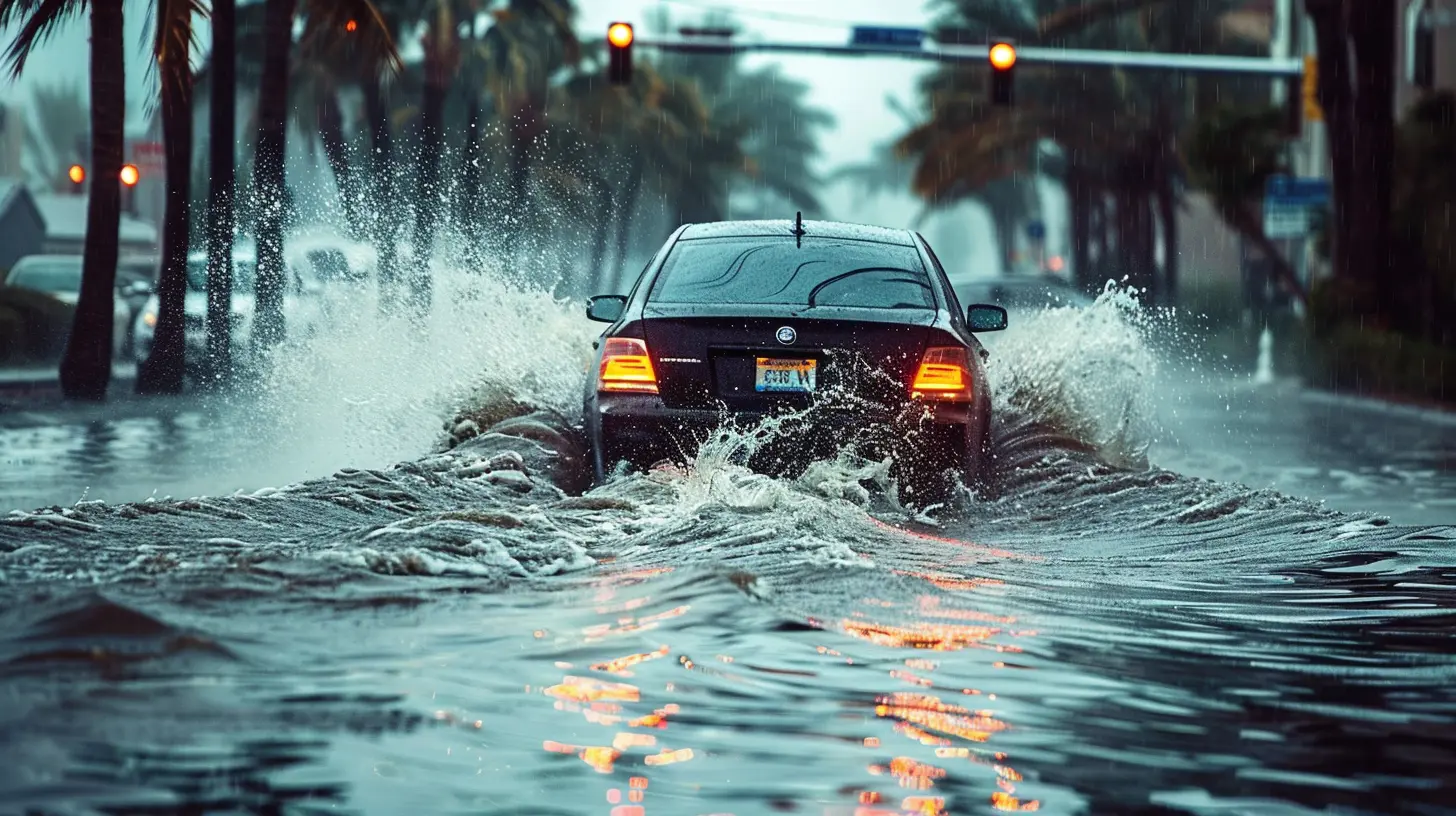15 April 2025
Traveling is one of the most rewarding experiences. Whether you're planning a trip to a tropical paradise or a snowy wonderland, the excitement of new adventures is unbeatable. But let's be real—Mother Nature can be unpredictable. Hurricanes, blizzards, wildfires, and floods can throw a wrench into even the best-laid travel plans.
So, what happens if your dream vacation turns into a nightmare because of extreme weather? That's where travel insurance comes in. It’s like a safety net, catching you when unexpected storms try to ruin your trip. But how exactly does it work, and is it worth the investment? Let’s break it down. 
Why Travel Insurance Matters in Extreme Weather
Picture this: You’ve booked a luxurious beach resort for a week, but a Category 4 hurricane is on its way. Suddenly, your flights are canceled, the resort is closed, and your much-anticipated vacation is in shambles. Without travel insurance, you could lose thousands of dollars.Travel insurance protects you from financial loss when extreme weather disrupts your trip. Whether it's a canceled flight, a delayed departure, or an evacuation, having the right policy can make all the difference. 
What Travel Insurance Covers in Extreme Weather
Not all travel insurance policies are created equal. If you're traveling to an area prone to hurricanes, snowstorms, or wildfires, you need to know what your policy actually covers. Here are some key protections you can expect:1. Trip Cancellation and Interruption Coverage
If extreme weather forces you to cancel your trip before departure, trip cancellation coverage can reimburse you for prepaid, non-refundable expenses like airfare, hotel stays, and excursions.Likewise, if you're mid-trip and a typhoon suddenly forces you to evacuate, trip interruption coverage helps cover the costs of returning home early.
2. Travel Delays and Missed Connections
Weather-related flight delays are a nightmare—especially when they cause you to miss a connecting flight or an important event. Travel insurance can reimburse you for additional expenses like meals, accommodations, and rebooking fees.3. Emergency Evacuation Coverage
Natural disasters can sometimes escalate quickly. If a wildfire spreads near your hotel or a hurricane floods the area, you may need to be evacuated for safety reasons. Some policies cover the cost of emergency transportation to a safer location.4. Medical Expenses and Assistance
If extreme weather causes injuries or health issues, travel insurance can cover medical expenses, including hospital stays, medication, and even emergency medical evacuation if necessary.5. Baggage Loss or Delay
Imagine arriving at your destination, only to realize your luggage didn’t make it because of flight disruptions from a major storm. Some travel insurance policies compensate you for lost, delayed, or damaged baggage.
What Travel Insurance Doesn’t Cover
While travel insurance is a lifesaver in many cases, it’s not a magic wand that covers everything. Here are some common exclusions:- Pre-existing Weather Conditions: If a storm has already been named when you purchase insurance, you may not be covered.
- Voluntary Cancellations: If you cancel your trip out of fear of bad weather (but flights and accommodations are still operating), you may not qualify for a refund—unless you have "Cancel for Any Reason" (CFAR) coverage.
- Government Travel Warnings: Some policies don’t cover you if you travel to a destination with existing travel advisories for natural disasters.
Always read the fine print before purchasing a policy to understand exactly what is and isn’t covered. 
How to Choose the Right Travel Insurance for Extreme Weather
Not all travel insurance policies offer the same coverage, so choosing the right one is crucial—especially if you're traveling somewhere prone to severe weather. Here’s what to consider:1. Look for Comprehensive Coverage
Ensure your policy includes trip cancellation, delay coverage, medical protection, and emergency evacuation. These are the most critical aspects when extreme weather is involved.2. Opt for "Cancel for Any Reason" (CFAR) Coverage
Sometimes, even if a storm isn’t directly affecting your trip, you may still feel unsafe traveling. CFAR coverage allows you to cancel your trip for any reason and still get a percentage of your costs refunded.3. Check the Fine Print on Weather Conditions
Policies differ in how they define weather-related cancellations. Some will cover you if your airline cancels your flight due to a storm, while others may not unless your accommodations are also inaccessible.4. Buy Insurance Early
Don’t wait until extreme weather is already developing. Once a storm is officially named, it’s considered a “foreseeable event,” and insurers won’t cover losses related to it. Get coverage as soon as you book your trip.Real-Life Examples of Travel Insurance in Action
Hurricane Disruptions in the Caribbean
Every year, hurricanes cause massive disruptions in the Caribbean. In 2017, Hurricane Irma led to thousands of canceled flights and destroyed tourist resorts. Travelers with insurance were able to recover their costs, while those without it faced steep losses.Winter Storms Wreaking Havoc on Flights
Snowstorms frequently shut down airports, leaving travelers stranded. In early 2022, massive snowstorms caused thousands of flight cancellations in the U.S. Passengers with travel delay insurance received compensation for accommodation and meals while waiting for rebooked flights.Wildfires in California Affecting Travel Plans
In recent years, wildfires have led to evacuations and closures of major tourist spots. Travel insurance helped cover emergency evacuation costs and trip cancellations for those affected.Final Thoughts: Is Travel Insurance Worth It?
If you've ever had a trip affected by extreme weather, you know how frustrating and costly it can be. Travel insurance might seem like an extra expense, but it’s a small price to pay for peace of mind. You wouldn’t drive a car without insurance—so why risk traveling without it?Before you book your next trip, take a moment to consider the risks. With the right travel insurance policy, you can safeguard your vacation, finances, and overall experience. Because no one wants their dream trip to turn into a financial disaster due to something as unpredictable as the weather.


